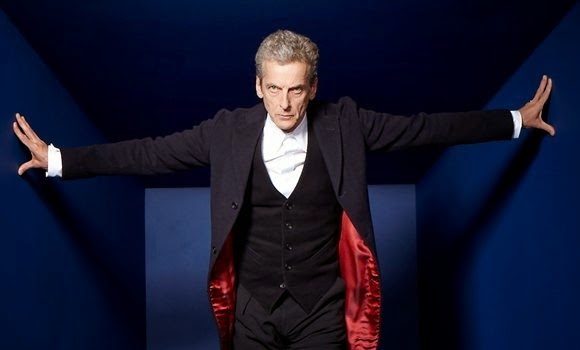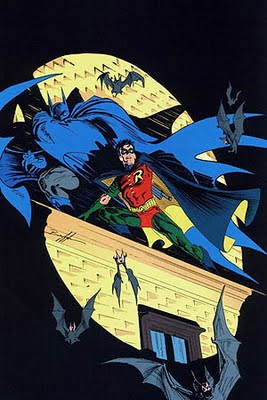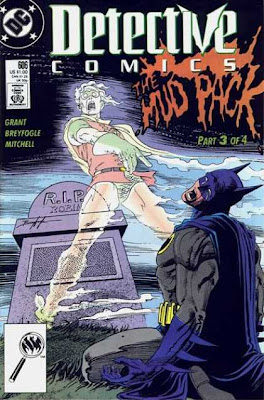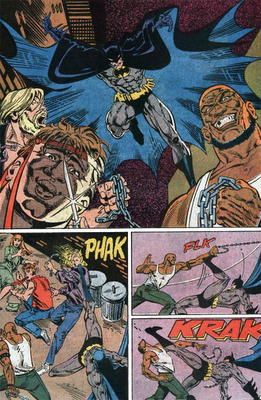There are a number of comics writers whose work I love. James Robinson, John Wagner, Alan Grant, Mark Waid, Stan Lee, Denny O' Neil, Garth Ennis, Scott Snyder, Dan Slott, Roger Stern, Jerry Siegel, Bill Finger, Marv Wolfman, J. Michael Straczynski, and Jim Shooter are just some of them. But for this article I've attempted to list the creators whose work has given me the most joy throughout my entire life. The writers whose words and ideas stay with me long after I've put the comic down.
If I'm reading a comic from the 70s/80s & I think "Wow, this is bloody good" more often than not I find it's been written by Gerry Conway. In 1972 at 19 years of age Conway took over writing duties on
from Stan Lee. That's pretty damn impressive in itself. According to Conway, in order to make up for his lack of experience and maturity he "
". The imagination, creativity and sheer range of ideas on display during his Spidey run is testament to this. Conway's contribution to the Spidey universe is almost as big as Stan Lee's! Under Conway Spidey had his first encounters with the Punisher, the Jackal, Man-Wolf, and Tarantula. Conway was not only the writer who cloned Spider-Man, he was also the writer who married Aunt May to Doctor Octopus! But despite all these amazing ideas Conway is probably most famous for killing off Gwen Stacy. That particular story has been imitated and referenced (most recently in
) more than any other Spidey story, save for the origin. But the shock of Gwen's death is by no means the only reason it's remembered. It's one of the most powerful superhero stories ever written, Peter Parker's grief and rage burns from every page and we feel like we're experiencing it right alongside him. We also get a deeper insight into Norman Osborn's madness and its destructive effect on his son than we ever got before, and we witness for the first time the hidden depths beneath Mary Jane Watson's party girl facade. This story defined Spidey and his world almost as much as his origin.
But Conway didn't just make his mark at Marvel. Among Conway's many achievements at DC was a lengthy run on Justice League of America, where he wrote some of my favourite Justice League stories of all time. These include a tale involving the League getting their minds swapped with the Secret Society of Super-Villains, and an adventure where the League help Zatanna discover the origins of the sub-race of magical humans to which her mother belonged, Homo magi. Conway also wrote several of the best Justice League/Justice Society team ups, including an Agatha Christie style murder mystery on board the JLA Satellite HQ and the very first team up between the two teams and Jack Kirby's New Gods.
While these are my personal favourite examples of Conway's work they are by no means the only examples of his significant contribution to the history of super-hero comics. He co-created Firestorm with Al Milgrom, Vixen with Bob Oksner, and introduced Jason Todd and Killer Croc to the Batman mythos. He also wrote the very first Superman-Spider-Man team-up. Without Conway the world of super-hero comics would be a very different place.
Essential Reading
The Amazing Spider-Man #121–122, 143-149 (1973-1975)
Firestorm #1-5 (1978)
Justice League of America #163-168, 171-172, 183-185 (1979-1980)
4. Peter David
If all Peter David had managed in his career was his
Incredible Hulk run then he'd still be lauded as one of the best super-hero comics writers ever. But David is also responsible for lengthy, much loved & consistently brilliant runs on
Aquaman, Supergirl, Young Justice, X-Factor, and many more. One of the things that makes David's
Hulk run so incredible (see what I did there?) is that he understood that change is an integral part of the character. When Stan Lee wrote the first six issues of
Incredible Hulk he experimented with the character, changing his status quo from issue to issue. David followed Lee's example and during his run readers barely had time to adjust to Hulk's life as a fugitive from the military before he suddenly became a mob enforcer for a Vegas casino, and then a leader of a secret organisation, and then a bearded tyrant from the future! Under David, Hulk was a green skinned savage, a grey skinned pervert, and a pony-tailed boffin in a muscle vest. But it never felt as if David was making changes because he didn't know what to do with the character. Throughout all the many transformations David kept a firm grasp on the core of the character. David understands the Hulk like only a few others do.
David is also responsible for making Aquaman a force to be reckoned with. Geoff Johns has garnered a great deal of (well deserved) praise recently for tackling the fish jokes head on and showing the world just how badass Aquaman can be. But David was doing exactly that back when Johns was still writing fan letters to
Superboy. David's Aquaman was not a guy to be trifled with. In one memorable issue the Sea-King invaded Japan in a gigantic, skull-shaped, telepathic, meteorite-spaceship. David deftly blended soap-opera, super-hero action, and political intrigue to make
Aquaman one of the best comics of the 90s. His Aquaman origin story,
The Atlantis Chronicles is a genunine epic masterpiece and it's a crime that it's never been collected as a hardcover or even a paperback.
I've barely scraped the surface of David's many achievements. In
Supergirl he explored religion and identity. In
X-Factor he explored the lives of mutants living on the fringes of Marvel's superhero community. In
Young Justice he actually made Red Tornado interesting! Perhaps one of his greatest contributions to superhero lore was his Spider-Man story, 'The Death of Jean DeWolff'. This grim but compelling,
Death Wish inspired tale gave us an insight into the anger and frustration that Spidey carries around with him and had repurcussions for the character that are still being felt today.
And if all that wasn't awesome enough, he created Spider-Man 2099!
Essential Reading
Peter Parker, the Spectacular Spider-Man #107-110 (1985-1986)
The Atlantis Chronicles #1-7 (1990)
Incredible Hulk: Future Imperfect (1993)
Supergirl #75-80 (2002-2003)
3. Alan Moore
A bit of an obvious choice for a Best Comics Writers list, but tough, Moore deserves his reputation as one of the greatest comics genius of all time! I'm finding it a bit hard to write about him to be honest because he's made no secret of his contempt for modern superhero comics and their audience. He
recently stated;
These days, superhero comics think the audience is certainly not 9 to 13, it's nothing to do with them. It's an audience largely of 30-, 40-, 50-, 60-year-old men, usually men. Someone came up with the term graphic novel. These readers latched on to it - they were simply interested in a way that could validate their continued love of Green Lantern or Spider-Man without appearing in some way emotionally subnormal.
Crikey, he's really got my number! I've read and loved a lot of Moore's work but it's his superhero writing that's resonated with me the most. But I can't help but feel uncomfortable writing about my love of his superhero work when Moore would probably see that love as evidence that I'm a philistinic, emotionally stunted man-child. Balls to him though, I'm going to do it anyway.
Moore's probably most famous for
Watchmen, the 12 issue maxi-series in which he takes the concept of the superhero to it's logical and terrifying conclusion. But my personal favourite of all of Moore's work is
Miracleman, in which he takes the concept of the superhero to a completely different but equally logical and terrifying conclusion. Only Moore could turn the superhero genre on its head twice, in completely different ways.
Miracleman is quite simply the most powerful and affecting comic I've ever read. Scenes from the comic clung to me for days after reading it. I went to sleep thinking about it every night for a week after I first read it. It's uncomfortable and horrific in places, and it demands that its readers asks themselves serious questions about the superhero myth and what it really means. But the story is so compelling and the characters are so real that it's never a difficult read, quite the opposite in fact.
Another favourite of mine is Moore's work on
Supreme, a cheap Superman knock-off created by Rob Liefeld. Rather than take
Supreme as another opportunity to reinvent the superhero genre, Moore seemed to decide to have a bit of fun with it. Given a Superman rip-off to write Moore set about making Supreme the greatest Superman rip-off there ever was.
Supreme is Moore's love letter to the Superman comics he grew up with in the 60s. Every aspect of Silver Age Superman's life has an equivalent (Radar the Hound Supreme - Krypto the Super-Dog, Suprema - Supergirl, Darius Dax - Lex Luthor, Supremium - Kryptonite, The League of Infinity - The Legion of Superheroes, etc), and when Supreme has flashbacks of his past they're in the form of stories written and drawn in the style of 40s, 50s and 60s
DC comics. This all sounds quite self indulgent but it really isn't. After all the deconstruction and hard questions of his older superhero work it's fantastic to see exactly what drew Moore to superheroes when he was a child. Moore's love for the imagination and fun of those old comics really shines through. And of course, at the core of all the fan wank are great stories and great characters.
Moore has been responsible for so many of my favourite comics;
The Saga of Swamp Thing, his Superman stories,
The Killing Joke, Tom Strong, League of Extraordinary Gentlemen, Captain Britain, and
V for Vendetta. If he didn't want emotionally subnormal man-children like me writing about him he shouldn't write such amazing comics.
Essential Reading
Miracleman (1982-89)
A Dream of Flying Red King Syndrome Olympus
The Saga of Swamp Thing #20-64 (1984–1987)
Supreme (1996-1998)
The Story of the Year
Judgement Day
The ReturnSuperman: Whatever Happened to the Man of Tomorrow? Deluxe Edition Hardcover (2009)
2. Geoff Johns
The thing that makes Geoff Johns such a fantastic writer is his ability to uncover and bring to the surface the simple, core truth of a character. When Johns writes a character he strips away all the clutter and baggage that character has amassed over the years and finds that unique, defining quality that made the character popular in the first place. He has a knack for being able to convey years of character development and plot points in a few lines of dialogue. In a few lines he can explain why he thinks any particular character is cool and why you should too. Johns is King of the 'Elevator-Pitch'. He does this better than any other writer and as a result he's written some of the most accessible superhero comics ever created.
His work on
JSA probably best exemplifies this. The Justice Society of America is a team of Golden Age superheroes and their successors. They were a team of B, C, and D List heroes who had been through a number of different writers and a number of status quo changes. Johns took each and every one of them and, (without discarding much, if any of their backstory) molded them into characters you could pitch to a TV executive or, more importantly a potential fan in just a few sentences. For example Power Girl and Hawkman were two JSA members with histories that were inextricably tied up with convoluted, contradictory and discarded storylines. They were considered by many to be broken characters. Thanks to Johns, Power Girl became a super powered Kryptonian from a Universe that doesn't exist any more who found a new home with the JSA. Hawkman became a fierce warrior with alien technology who had been reincarnated again and again since the time of the Pharaohs, all for love. Of course, they had always been these things, but it took Johns to see the potential through the clutter and show it to us.
Over the years Johns has done the same thing for Green Lantern, Booster Gold, Legion of Superheroes, Flash and his Rogues, Shazam, Cyborg, Superboy, Aquaman, Lex Luthor, and even Superman. Most recently in the pages of
Justice League he made me a massive fan of the Metal Men in just one issue. When he worked for Marvel he wrote a
Vision mini-series that I guarantee will make you love the Vision.
Johns is also master of the 'F**k-yeah' moment. Whenever a comic has made me literally punch the air with joy and shout "f**k yeah!", most of the time it's a Johns comic. Johns' Superman doesn't just defeat Brainiac, he grinds Brainiac's face into the mud and says "Welcome to Earth!" Under Johns' pen, Green Lantern doesn't just rise from the dead, he rises from the dead at the eleventh hour "with plenty of damn will!" Johns throws a lot of pretty big threats at his heroes (he's gained a reputation for maiming Z-List characters), but when they eventually win, they really WIN!
If you're reading this because you want to get into superhero comics I can unreservedly recommend pretty much any Geoff Johns comic as a good place to start. He will make you love these characters as much as he does.
Essential ReadingJustice Society of America #5-77, 81, Annual #1 (2000-2006)






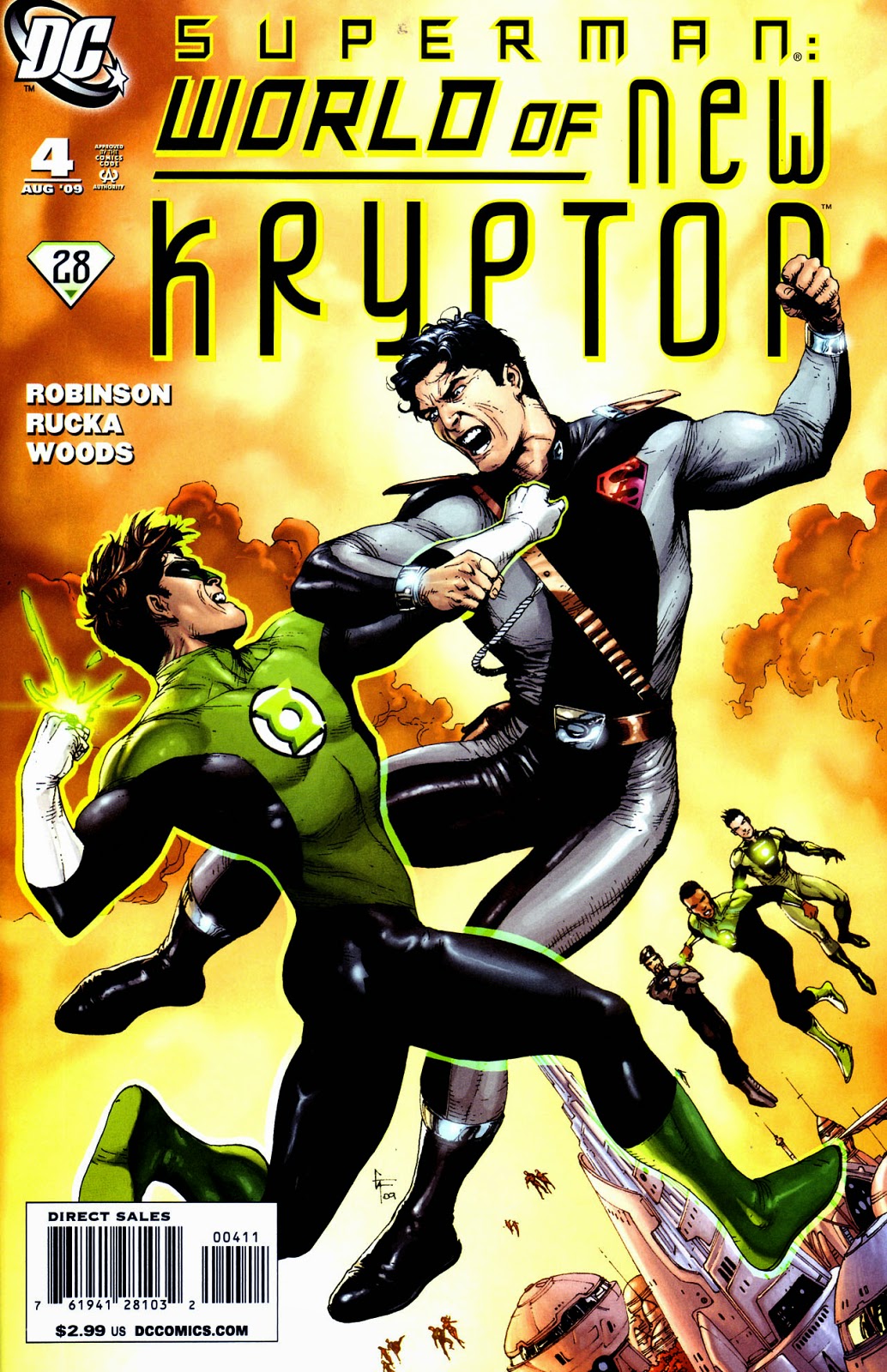




+032-024.jpg)
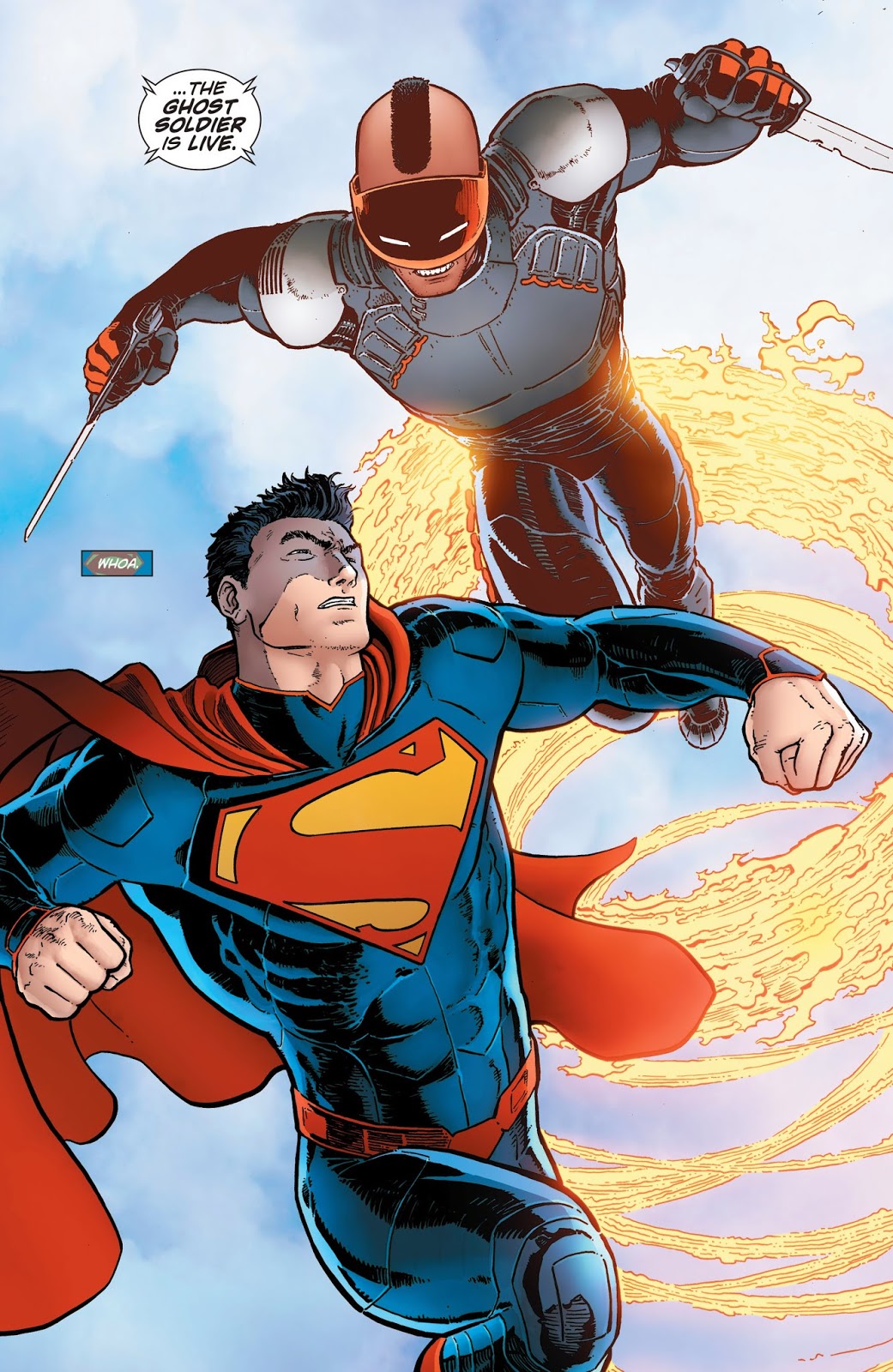+026-011.jpg)























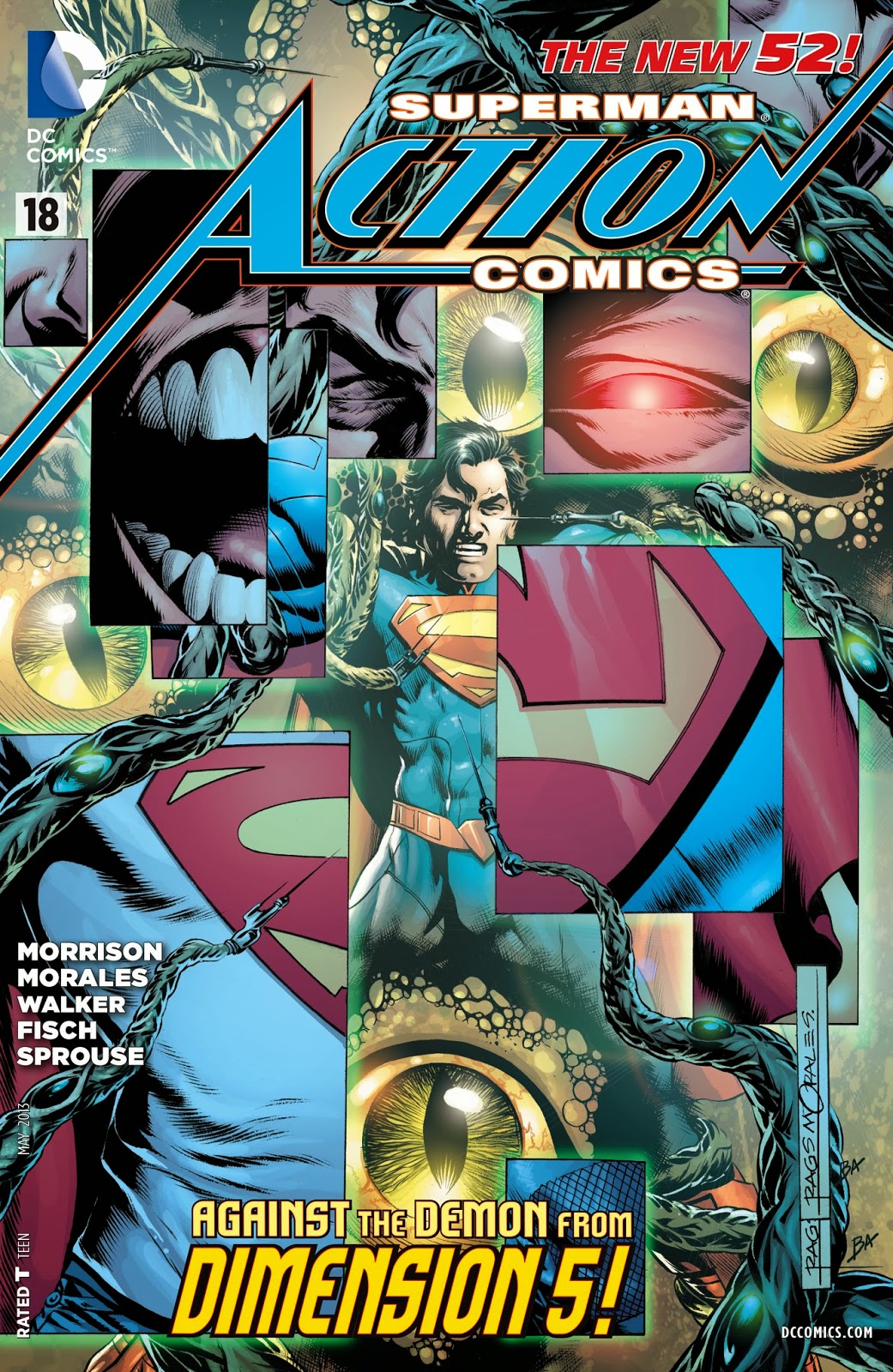




























.jpg)










